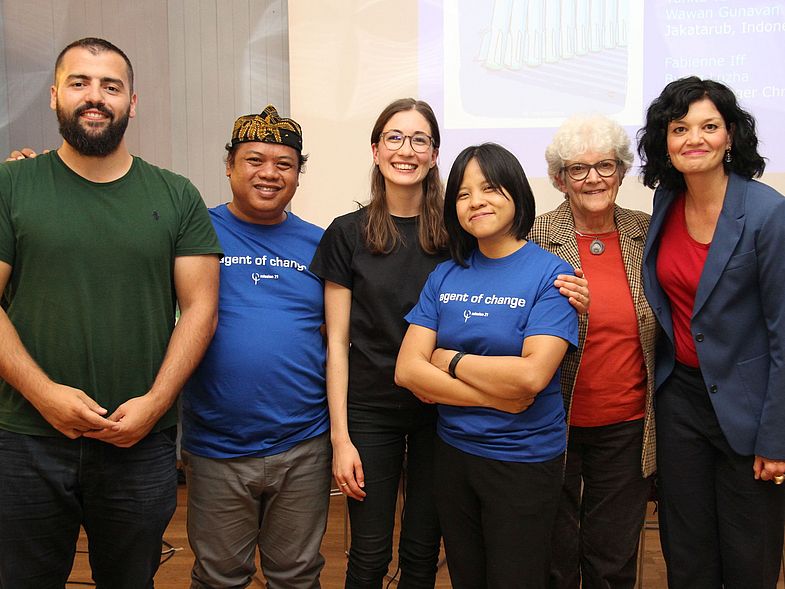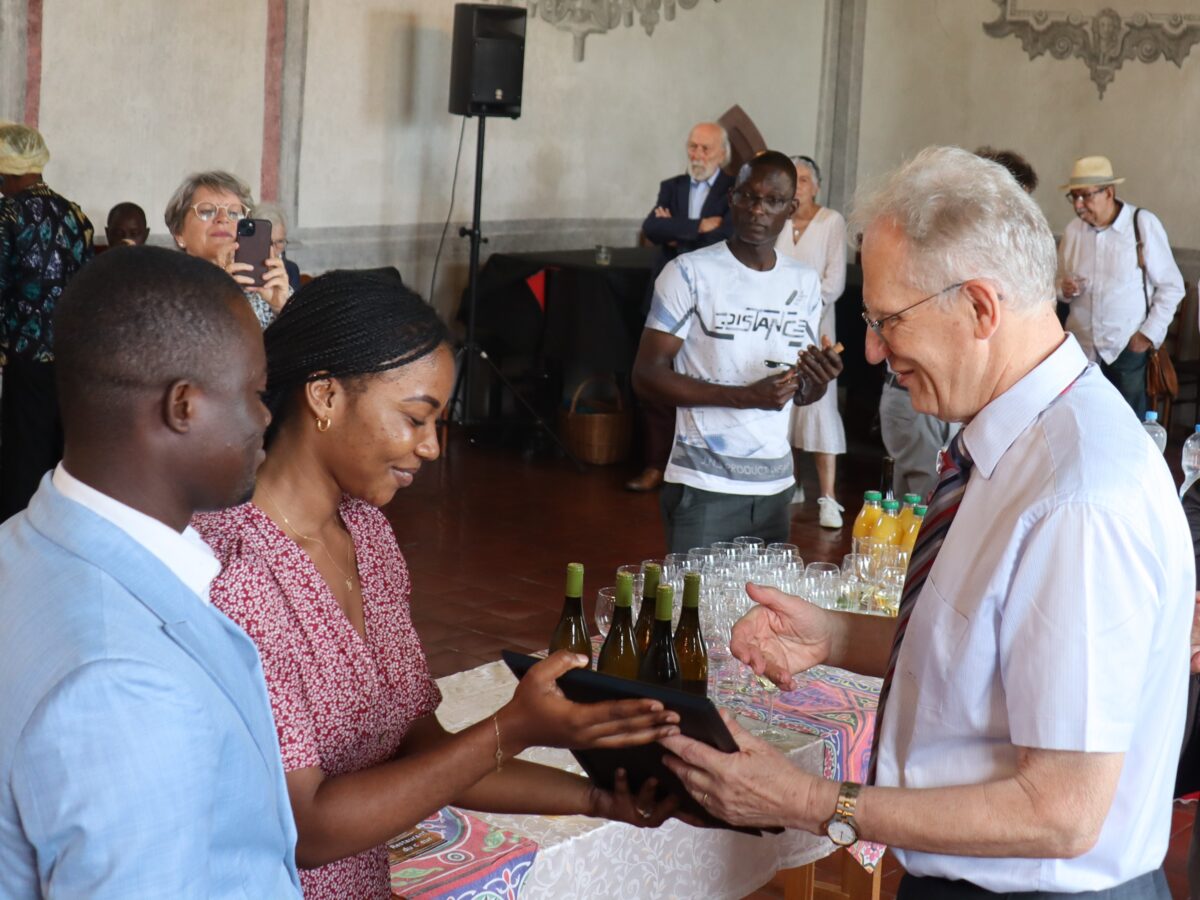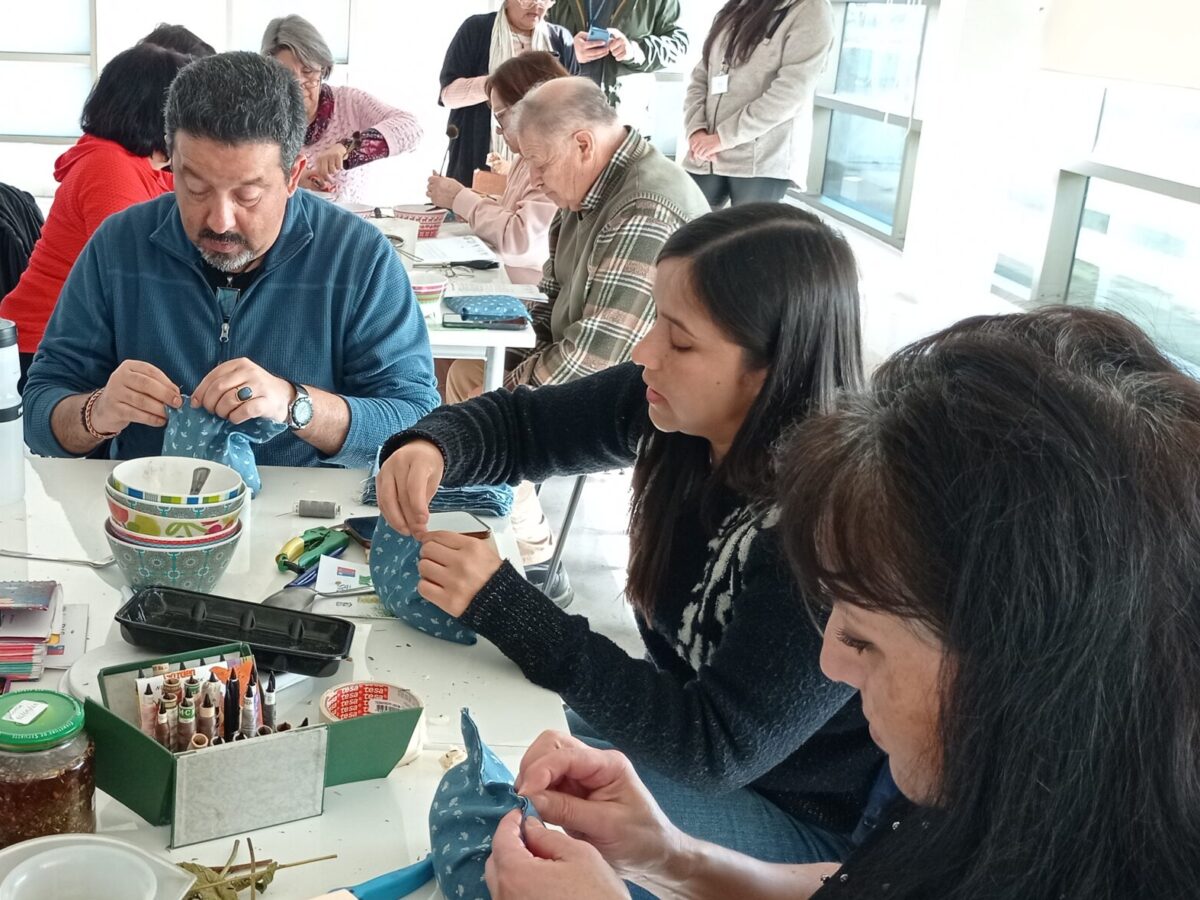Whether in Switzerland, where Islamophobia is rampant, or in Muslim-majority Indonesia, where hatred and violence against Christians and other religious minorities have been on the rise for several years: Religions are an ambivalent topic. All over the world, they provide a sense of belonging and meaning, but at the same time they are often the cause of conflicts - or instrumentalized for conflicts by those in power.
What is needed for peaceful coexistence between religious groups, in Indonesia and in Switzerland? And what role do young people play in this? This is what Mission 21's series of events "Dialog International" wanted to know from activists from Switzerland and Indonesia on September 19, 2019. The event took place as part of the autumn campaign "Peace grows with us".
Indonesia: Unity in Diversity?
Wawan Gunawan, a Muslim, and Yunita Tan, a Catholic, traveled from Indonesia for the event. "An important characteristic of Indonesia is diversity. But this diversity has been threatened by fundamentalist groups for several years," says Wawan Gunawan. "Churches or buildings belonging to other religious minorities are being closed down all the time. Violence and discrimination against people of other faiths is also on the rise." With Islam, he belongs to Indonesia's majority religion - and he observes the increasing radicalization of state and society in his home country with great concern. Together with many others, the Muslim is involved in the interfaith youth network Jakatarub. "In Indonesia, six religious groups are officially recognized. But at Jakatarub, everyone is welcome, even atheists," explains Wawan Gunawan.
Already since 2001, this colorful group has been working for an equally diverse and colorful Indonesia - with a wide range of activities, campaigns and interfaith meetings. For example, the network organizes an annual interfaith youth camp that already has several independent regional offshoots. On social media and on the streets of Bandung in West Java, the group is active with campaigns and wants to inspire more people about peaceful coexistence. "The focus of our work is open, friendly encounters and respect for one another," says Yunita Tan.
Promote mutual understanding
Building friendships is also a central concern of the "Young Christians and Muslims Switzerland" forum, which was represented at "Dialog International" by Christian Fabienne Iff and Muslim Burim Luzha. The interfaith association was only officially founded in 2016, but the first meetings and activities of its members, who mainly belong to Christian and Muslim student groups, date back to 2012.
From joint, interreligious engagement for displaced persons to interreligious theology lessons, the association brings Christians and Muslims together and thus promotes mutual understanding. "Both are important to us: on the one hand, the theological exchange, but also that we as Muslims and Christians take on social tasks together and thus come closer," says Burim Luzha.
"Here in Switzerland, we face very different challenges than Jakatarub," Fabienne Iff notes. "We don't have a religious state, but as religious communities we have to relate in general to a secular state and a secular majority society."
Humanity in focus
The young people from Switzerland and Indonesia agree that one thing above all is important for open, interreligious dialogue: "We have to take other people seriously and recognize them," emphasizes Burim Luzha - even if someone has a completely different opinion or is very intolerant himself. Fabienne Iff explains: "If we simply portray radically religious people as totally out of line, we probably won't achieve much. Rather, we need to show understanding for their situation and for the fact that their opinions and attitudes have been built up over many years and mostly conditioned by their environment." Discarding such identities, he said, is extremely difficult - "especially if they are met with a purely dismissive attitude."
Wawan Gunawan also talks a lot about communication and understanding - even when something seems as inexplicable as violence:" If a church is attacked, for example, we go directly there and talk to the perpetrators. That's not easy, takes time and doesn't always succeed. Nevertheless, it's the only way and we do it again and again."
Wawan Gunawan also emphasizes that the motives for such acts are often mixed: "Many Muslims who are prepared to use violence, for example, are severely affected by poverty and discharge their personal anger by attacking minorities." This does not excuse the acts - but an understanding of the structural, social dimension of the propensity to violence is important, along with an examination of the ideologies.
Fabienne Iff says: "As young people, we have the advantage that our identities are not yet so entrenched. Young people are often still malleable, and can be convinced to be more open more quickly than older people. But this also gives us a great responsibility!"
With great passion
What was most noticeable at the event was the heart and soul that all four young ambassadors for peace put into their interreligious commitment: "I learn so incredibly much every time - whether in theological or personal exchange," says Fabienne Iff, for example. Burim Luzha says that, on the one hand, he finds interreligious exchange very important for society, but that it has now become a passion for him above all.
"I can't imagine my life without Jakatarub," says Wawan Gunawan from Indonesia. And his colleague Yunita Tan adds: "Thanks to Jakatarub, I can devote my life to meaningful activities. As a Catholic with Chinese roots, the young woman faces multiple discrimination - based on her ethnicity, her religion and her gender. Hatred in Indonesia against Chinese is deliberately stoked, she said, including by the state. "My family is worried and I don't tell them everything about my commitment to Jakatarub, for example I don't tell them about my participation in demonstrations. But fortunately, compared to my parents, I myself have had less bad experiences with violence and discrimination. This is another reason why I can approach people of other religions more openly and positively. Jakatarub gives me hope every day when I get up that Indonesia is getting better bit by bit."
Text and photo: Mara Wirthlin
► Next Dialog International "New Manns-Pictures






